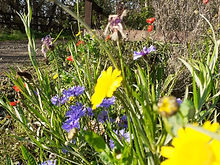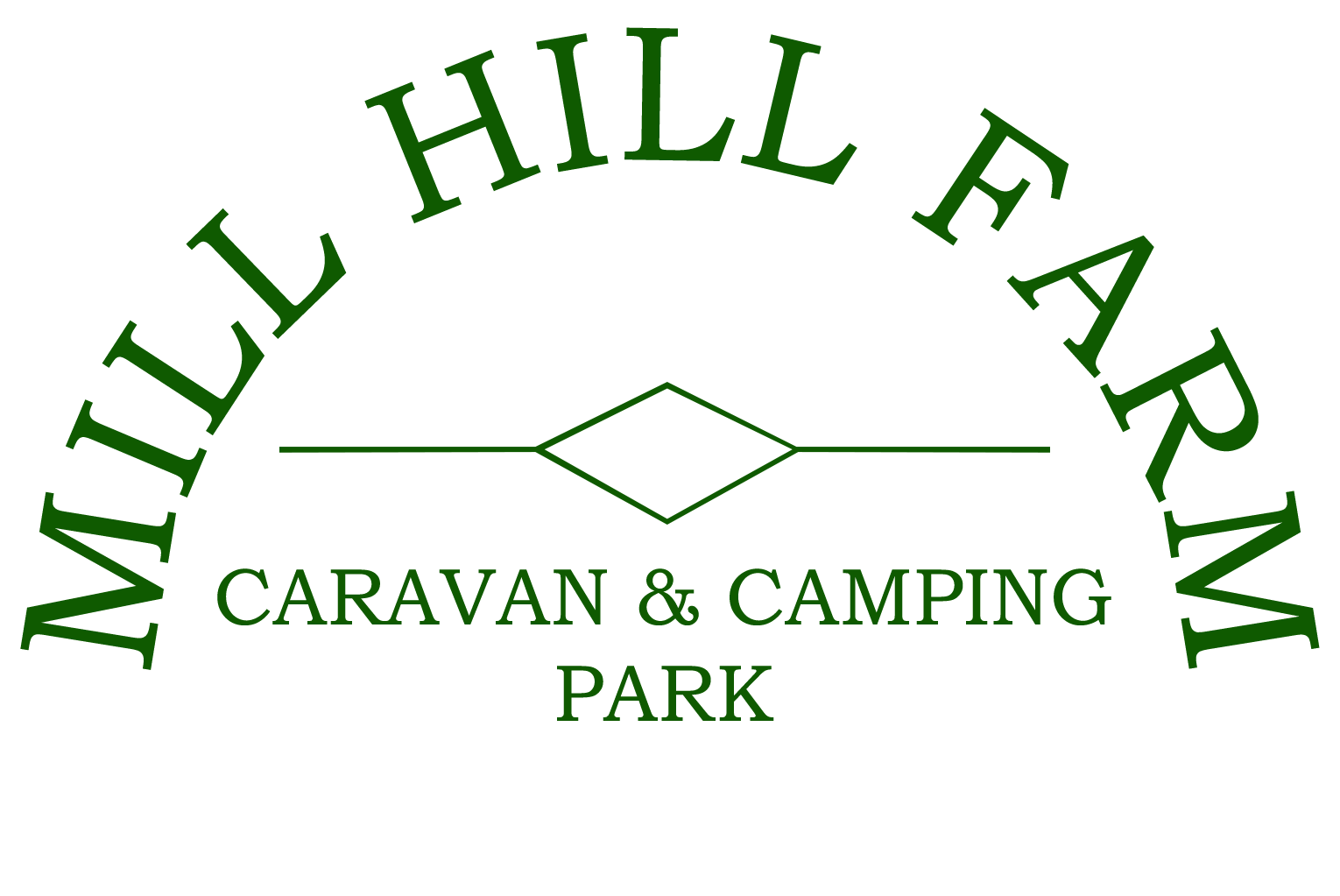BOOKING AND GENERAL TERMS AND CONDITIONS
Check out the terms and conditions before booking.
PLEASE NOTE THAT WE DO OPERATE A QUIET BETWEEN 9PM AND 9AM POLICY.
ARRIVAL TIME IS 2PM-5PM (ARRIVALS BETWEEN 5PM & 8PM ARE BY PRIOR ARRANGEMENT ONLY). NO ARRIVALS AFTER 8pm.

wildlife and eco features
Choosing to stay at Mill Hill Farm Campsite means you can have a great holiday that won't cost The Earth. We are committed to providing the highest quality facilities and surroundings using, whenever practicable, locally sourced, environmentally sound, recycled, natural and sustainable materials and fittings.
The aim of this page is to show some of our site's ecological features, explain how some of them work and even show you some parts of the site which you may never see.
We will also show you some of the ways in which you can offset the carbon footprint of your holiday, help the wildlife around the site and even save yourself money!
In order to encourage Green Tourism we offer a 10% discount to anyone wishing to stay with us who arrives by public transport, bicycle or is hiking.
There is another way to achieve both aims whilst staying with us; why not plan a couple of 'car free' days? We are surrounded by footpaths, cycle routes and nature reserves so bring your bikes and stout walking boots. We can even help you with route information and local attractions. Connecting communities run a rural transport service and we are lucky that there is still a bus and train service in the village.
Allow us to show you around some of our energy saving and environmental features...




Low energy light bulbs are used throughout the site whilst non concussive taps help us to halve our water consumption.
Rain water harvesting helps us to water our plants and trees.
All our road surfaces are made from recycled materials.
We have three heated shower/toilet blocks.
We use solar assisted hot water systems, motion sensitive, low energy lighting and water saving dual flush toilet cisterns.
Our chemical disposal points are for organic fluid only as non-organic fluid will kill the bacteria in the treatment system. When choosing toilet fluid look out for products that do not contain formaldehyde as this cannot be broken down by naturally occurring organisms and is not so good for the environment.
The waste tank uses billions of live bacteria as a biomass to break down materials; by the end of the process, water is all that remains. This system is both odourless and safe for the environment.
For your convenience organic fluid may be purchased from reception, our aim is always to supply this fluid at a cost below caravan accessory stores.
Please remember to empty any non-organic fluid from your tank before arrival as just a small amount willl destroy the treatment system.

One of the earliest forms of green energy was harnessing the wind. A windmill stood on this site for many years and today is no exception, our modern wind turbine silently assists our electric needs and can be found away from the campsite adjacent to the fishing lake.

We have two dog walks which have proved very popular, and not only with our four legged guests! The two meadows are left to grow and cut for hay which encourages meadowland wild flower species. A path around the outside offers a good walk and opportunities to see flora and fauna whether you have a dog or not.
Other grass areas provide nesting sites for numerous skylarks;. Our grassland is also used by Kestrel, Marsh Harrier and our resident Barn and Tawny Owls for hunting. Wild flowers thrive attracting many insects including butterflies. Red Deer, Muntjac and Stoat are also regularly seen.
In 2018 it was noticed that a large population of Bee Orchids had appeared near the old lake. These have come in on the wind with no assistance form us and continued to flower again and again! They have been joined by a thriving population of Southern Marsh Orchid.
The Wheatear Meadow area had to be re-sown as it was infested with Ragwort which is poisonous to cattle and other animals, but the grass re-established well.
All around the site you will find recycled and reclaimed materials; our exterior noticeboard started life as a flat screen TV.

Unmown areas for wildlife

Bee Orchid at Georges lake

Young Horse Chestnut leaves about to unfurl
The choice of a camping holiday is a far more environmentally friendly choice than a trip abroad but if you wish to further reduce your impact why not take part in our 'Carbon Offset Scheme'?
This may be achieved by donating to the site, a healthy tree, shrub, bush or even an unwanted flower from your garden then cared for by our ground staff.
Your donation will then work hard for you, not only for the holiday you have just enjoyed but for any subsequent visits to Mill Hill Farm.

Log piles around the site are placed for insects and birds while our buddleia trees are magnets for butterflies.
Butterflies not only need a food source as adults but the caterpillars need a food source too. Leaving patches of nettles to grow up assist butterflies to thrive. We also have Box Alder which supports the Brimstone butterfly.
There are a number of boxes bird and Bat boxes around the site.
The campsite is adjacent to Suffolk Wildlife Trust's, Darsham Marshes Nature Reserve and just 2.5 miles from the RSPB's flagship reserve, Minsmere.
There is a permissive path from the reserve, which crosses the river to meet up with public footpaths to Middleton.
We work closely with our Wildlife Trus neighbours, assisting them with projects.
We have created new habitats on our site. Along with the new fishing lake we have created wildlife corridors linking neighbouring woodland and pastures and created a scrape wetland area. Every winter we carry out tree planting to add to the existing hedges and copses.
We are involved with Operation Turtle Dove which is a project to improve feed availability and nesting sites for Turtle Doves. This project seems to have had a good outcome here. We have heard, more often than seen, several birds around the farm. We are also helping the Turtle Dove tagging programme, which aims to track the doves in a bid to protect them from further decline. We continue with reedbed and hedgerow management, wildflower meadow management, bird and bat box building, maintaining woodpile habitats, and recycling.
We hope this page has been of some interest to you and, may be given you some insight into our campsite, its facilities and some of the work we have done and are doing as part of our commitment towards an environmentally friendly holiday destination.
We hope you will come and visit us soon.
